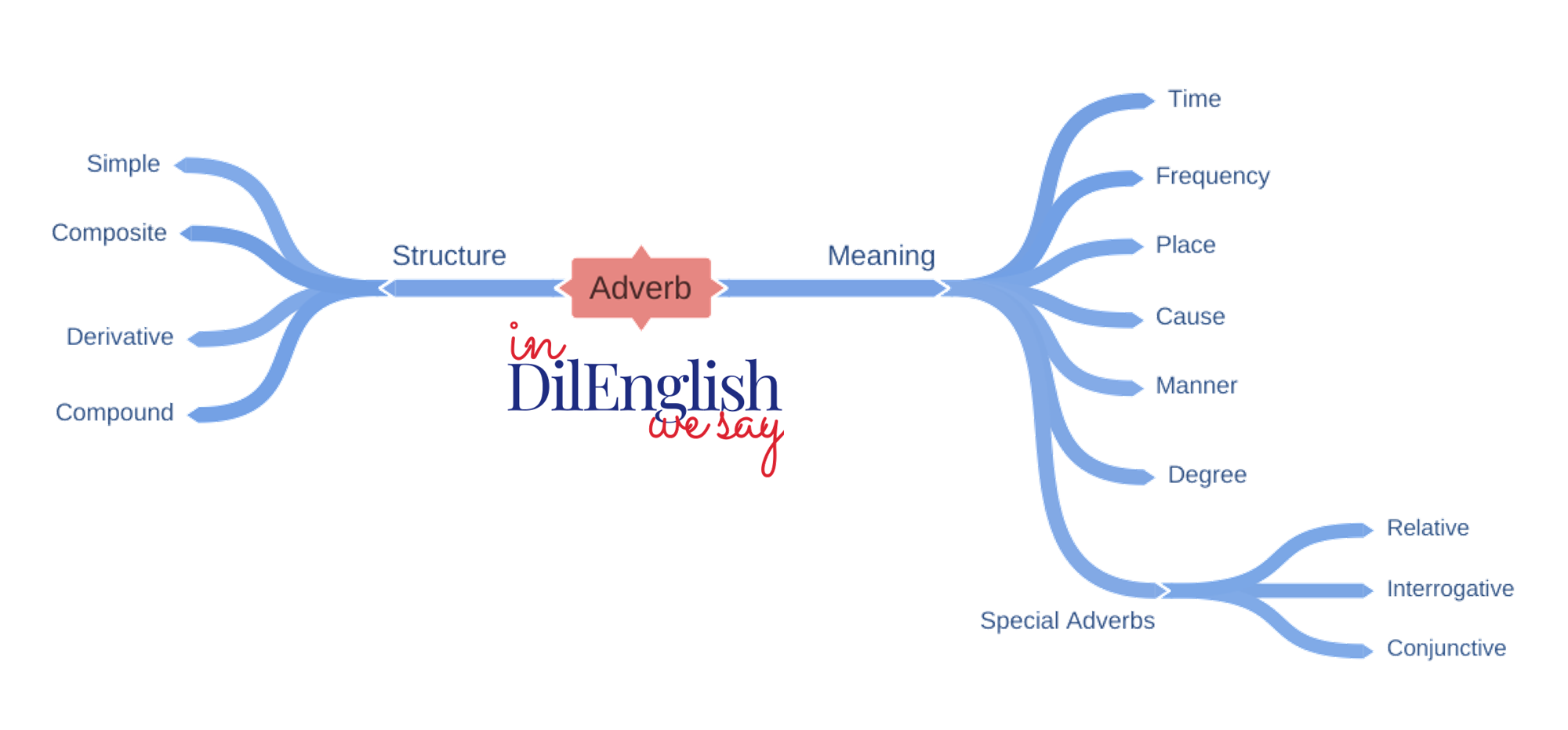The adverb is a part of speech that expresses some circumstances that attend an action or state or point out some characteristic features of an action or a quality.

Function
The function of the adverb is that of an adverbial modifier. An adverb may modify verbs (verbals), words of the category of state, adjectives, and adverbs.
Annette turned her neck lazily, touched one eyelash and said: “He amuses Winifred.” (Galsworthy)
And glancing sidelong at his nephew he thought… (Galsworthy)
For a second they stood with hands hard clasped. (Galsworthy)
And now the morning grew so fair, and all things were so wide awake.(Dickens)
The man must have had diabolically acute hearing. (Wells)
Harris spoke quite kindly and sensibly about it. (Jerome)
Structure
As to their structure adverbs are divided into:
| simple | long, enough, then, there, etc. |
| derivative | slowly, likewise, forward, headlong, etc. |
| compound | anyhow, sometimes, nowhere, etc. |
| composite | at once, at last, etc. |
There are some other suffixes: -wards, -ward; -long, -wise.
Degree of Comparison
Some adverbs have degrees of comparison.
If the adverb is a word of one syllable, the comparative degree is formed by adding – er and the superlative by adding -est.
fast — faster — fastest
hard— harder — hardest
Adverbs ending in – ly form the comparative by means of more and the superlative by means of most.
wisely — more
wisely — most wisely
beautifully — more
beautifully — most beautifully
Some adverbs have irregular forms of comparison:
badly — worse — worst
much — more — most
little — less — least
well — better — best
Meaning
According to their meaning adverbs fall under several groups. So there are adverbs of:
| time | today, tomorrow, soon, etc. |
| repetition or frequency | often, seldom, ever, never, sometimes, etc. |
| place and direction | inside, outside, here, there, backward, upstairs, etc. |
| cause and consequence | therefore, consequently, accordingly, etc. |
| manner | kindly, quickly, hard, etc. |
| degree, measure, and quantity | very, enough, half, too, nearly, almost, much, little, hardly, rather, exceedingly, quite, once, twice, firstly, secondly, etc. |
Three groups of adverbs stand aside:
- Interrogative adverbs (where, when, why, how) are used in special questions.
- Conjunctive and relative adverbs are used to introduce subordinate clauses.
